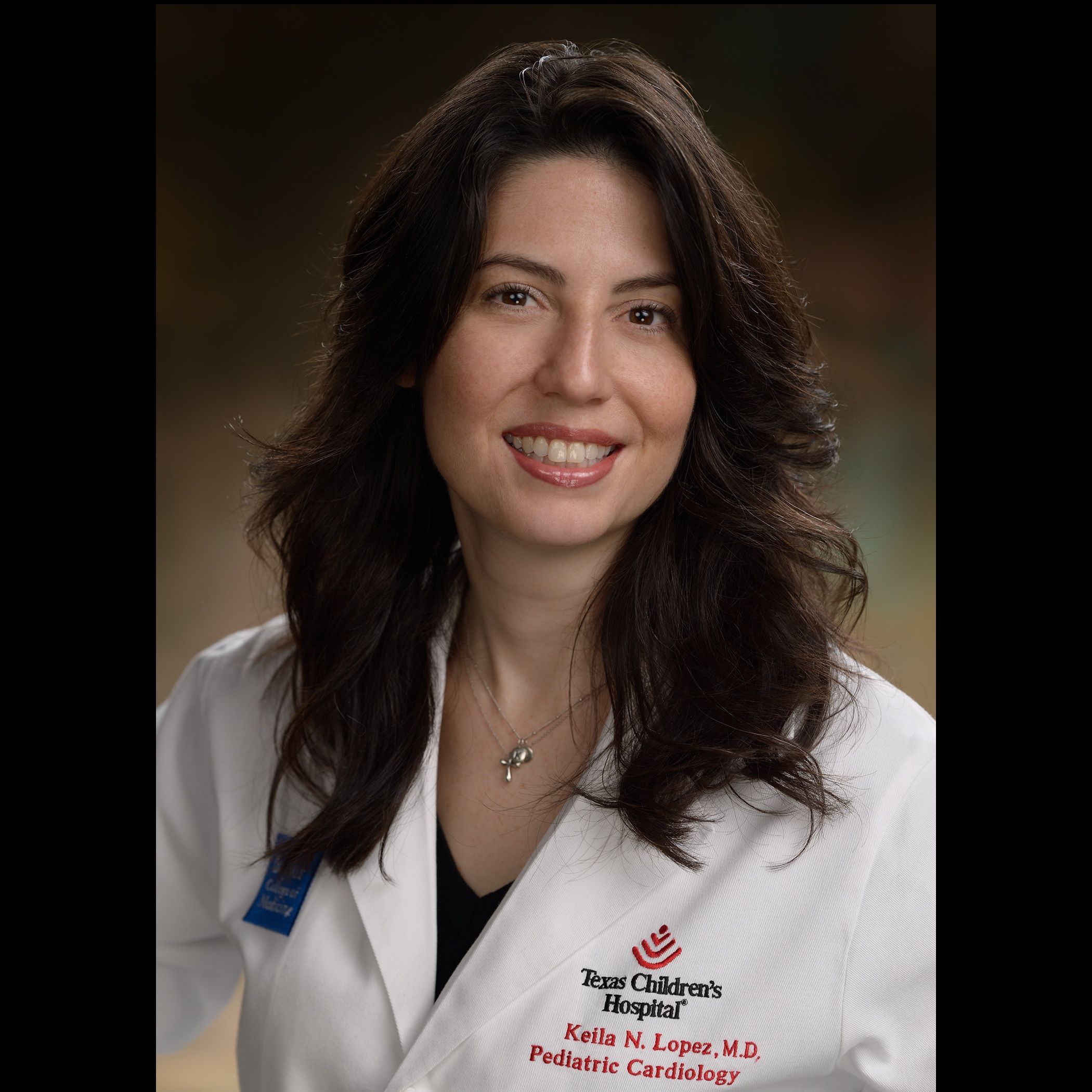Social determinants of health affect care for people with congenital heart disease
[ad_1]
Statement Highlights:
- Improving overall health equity for people with congenital heart disease requires recognizing the impact of social determinants of health throughout their lifespan.
- Systemic societal inequities and structural racism impact the health of people with congenital heart disease from prenatal care through adulthood.
- A new American Heart Association scientific statement suggests strategies to improve equity in congenital heart disease care that include research into implicit and explicit biases, systemic inequities that result in poorer social determinants of health, and examines the population, institutional, systemic and individual level contributors to health disparities.
Embargoed until 4 a.m. CT / 5 a.m. ET Thursday, April 7, 2022

 (NewMediaWire) – April 07, 2022 – DALLAS – As medical and surgical treatments have improved and survival has increased, the majority of people with congenital heart disease are now adults rather than children, yet disparities driven by social determinants of health (SDOH) limit access to the lifelong specialty care needed, according to a new American Heart Association scientific statement published today in the Journal of the American Heart Association, an open access, peer-reviewed journal of the Association.
(NewMediaWire) – April 07, 2022 – DALLAS – As medical and surgical treatments have improved and survival has increased, the majority of people with congenital heart disease are now adults rather than children, yet disparities driven by social determinants of health (SDOH) limit access to the lifelong specialty care needed, according to a new American Heart Association scientific statement published today in the Journal of the American Heart Association, an open access, peer-reviewed journal of the Association.
An American Heart Association scientific statement is an expert analysis of current research and may inform future guidelines. The new statement focuses on the impact of SDOH – the conditions in which people are born and live, such as education, employment, housing, income, and access to food and safety – among people born with congenital heart defects. Societal factors impact the ability of people born with congenital heart disease to get appropriate specialty treatment throughout their lives and particularly when they are transitioning from pediatric to adult care.
The word congenital means existing at birth. The terms “congenital heart defect” and “congenital heart disease” are often used to mean the same thing and are used interchangeably in the scientific statement. It’s important to note, however, that while “disease” is more commonly used, “defect” is more correct because the heart problem is a defect or abnormality, not a disease. A congenital heart defect results when the heart or blood vessels near the heart don’t develop normally before birth. These structural problems can usually be surgically addressed; however, for many, the condition is not completely cured. People with a congenital heart defect (CHD) – particularly those with complex heart problems – may require multiple operations and need specialty heart care throughout their lives.
“Social determinants of health affect every single facet of CHD – from who is born with a heart abnormality to who is diagnosed prenatally, to outcomes of surgery, to clinical follow-up as well as transitioning to adult care,” said the Chair of the statement writing group Keila N. Lopez, M.D., M.P.H., an associate professor of pediatrics and medical director of the transition medicine division of pediatric cardiology at Texas Children’s Hospital/Baylor College of Medicine in Houston.
This statement follows a 2020 presidential advisory from the Association, published as a call to action to confront structural racism as a fundamental driver of health disparities.
“When people think about individuals with poorer health outcomes, they often assume that these are the direct result of individual choices that people make; however, that is often not the case. Differences in the social determinants of health are often directly linked to worse health outcomes,” said Lopez. “Disparities in health outcomes, such as life expectancy differences, are in large part due to long-standing systemic and structural racism factors across society that affect the communities in which people live and the care that is available, all of which negatively affects their lifelong health.”
At the population level of care, the statement points out that while there has been overall improvement in outcomes due to advances in surgical and medical care for congenital heart defects, there has been minimal improvement in equitable access across the U.S. to that care. Specialty care services are concentrated in urban areas, making access difficult for those who live in rural or smaller communities. Availability of care also refers to an individual’s access to transportation and working at a job with the flexibility to have time off for health care needs, which tends to be more challenging for people with a complex disease and who have a lower socioeconomic status. Referral patterns to specialty care can also affect access to care.
Studies have explored referral patterns to congenital cardiac centers by insurance status, revealing a higher proportion of people with private insurance being referred to hospitals with lower mortality compared to those who have public insurance. Strategies to address these access issues include increasing specialist availability via satellite clinics in nonurban areas and increasing telehealth capabilities. Investigating policies for public insurance accessibility both within states and across state lines will be important to ensure access to CHD care. Improving access to care and insurance coverage can also support a healthier transition to adulthood and adult care for people with congenital heart disease.
“Individuals who lack access for any reason also tend to have the highest gaps in care, particularly when transferring from pediatric to adult congenital specialty care, making the impact of social determinants particularly important between the ages of 18 and 26,” said Lopez. “Individuals often lose access to insurance during these years of early adulthood.”
At the institutional level of care, the statement reports that it is unclear the degree to which hospital-level factors influence disparities of care versus the SDOH or individual factors. Some hospitals perform a higher volume of specialty heart care and surgeries, yet there is still a wide range of outcomes even across hospitals with the same volume. While race, ethnicity and lower socioeconomic status have been associated with worse outcomes after congenital heart disease surgery, more research is needed in this area to better understand these associations.
There are, however, nonsurgical factors that affect the type of care available at different institutions. These factors include variations in home monitoring and visitation programs; the availability of programs to support nutrition, growth and cognitive development (such as school-based outreach); and varying levels of cultural competence in these programs. Also, the availability of non-English language providers and resources can make a difference in the quality of care at different institutions. The statement suggests the need for data to understand institutional referral patterns, hospital volume, and the resources, income and insurance needed to receive care at the hospitals with appropriate specialty care.
A systemic look at access to care focuses on the availability and diversity of the health care workforce. Even for people who have health insurance, a lack of specialty providers is a major concern as the population of adults with CHD continues to grow. There are fewer than 500 board-certified specialists in adult congenital heart disease in the U.S., and they are primarily located at specialty heart centers in urban areas.
“There is a lack of funding for subspecialty fellowships in pediatric cardiology and adult congenital heart disease,” said Lopez. “While Medicaid funds most residency slots for internal medicine training, it often does not provide funds for pediatric subspecialty fellowships, which restricts the number of available slots. Applicants and institutions must then fund their own fellowship training programs, such as those for adult congenital heart disease.”
In addition to the need for more CHD health professionals, there is ample opportunity to increase diversity among pediatric cardiologists. Fewer than 8% of CHD physicians are people from diverse racial and ethnic groups, although the percentage in pediatric cardiology fellowship programs edged up slightly between 2006 and 2016 (from 7.7% to 9.9%, respectively).
“Racial and ethnic diversity matters for health outcomes, patient trust and research. Studies confirm that having concordant care and a clinician workforce that resembles the population they are serving has an impact on patient outcomes. It’s critical to improve the diversity of the pipeline by encouraging medical students to enter subspecialties, including pediatric cardiology and adult congenital heart disease,” Lopez said.
Suggestions to improve diversity include: 1) establishing high school and undergraduate “pipeline” programs that expose young students to health care professionals that look like them and encourage them along the educational pathway to health care professions; 2) recalibrating medical school admission to include holistic assessment of applicants; 3) substantial cost reduction for graduate or medical school; 4) establishing and funding minority-serving medical schools; and 5) greater focus on retention and promotion of physicians from diverse racial and ethnic groups.
At the individual level, the statement highlights the role of implicit bias, microaggression and racism and how they create barriers to care. The statement calls attention to the importance for individuals to serve as their own advocates to combat biases and systemic racism within the health care system.
“Race is a social construct,” said Lopez. “Using it as a biological construct to explain racial differences in outcomes is not valid. We must recalibrate how race is incorporated in scientific and medical research moving forward; it is important information to ensure we increase equity for all people regardless of race or ethnicity.”
Although this statement is limited to congenital heart disease, the same concerns about transition to adult care apply to many other medical conditions in children.
“We are not alone. Many of my colleagues care for children with lifelong, complex medical conditions – such as cystic fibrosis, sickle cell disease, type 1 diabetes and spina bifida. In the past, many of these children may not have survived past childhood, so developing successful transitions to adult care is an urgent need that is universal for all children as they age into adulthood,” said Lopez.
This scientific statement was prepared by the volunteer writing group on behalf of the American Heart Association’s Congenital Cardiac Defects Committee of the Council on Lifelong Congenital Heart Disease and Heart Health in the Young (the Young Hearts Council); the Council on Epidemiology and Prevention; and the Council on Lifestyle and Cardiometabolic Health. American Heart Association scientific statements promote greater awareness about cardiovascular diseases and stroke issues and help facilitate informed health care decisions. Scientific statements outline what is currently known about a topic and what areas need additional research. While scientific statements inform the development of guidelines, they do not make treatment recommendations. American Heart Association guidelines provide the Association’s official clinical practice recommendations.
Co-authors are Vice Chair Shabnam Peyvandi, M.D., M.A.S.; Carissa Baker-Smith, M.D., M.P.H.; Glenn Flores, M.D.; Michelle Gurvitz, M.D., M.S.; Tara Karamlou, M.D., M.Sc.; Flora Nunez Gallegos, M.D., M.P.H.; Sara Pasquali, M.D., M.H.S.; Angira Patel, M.D., M.P.H.; Jennifer K. Peterson, Ph.D., A.P.R.N.-C.H.S.; Jason L. Salemi, Ph.D., M.P.H.; and Clyde Yancy, M.D., M.Sc. Authors’ disclosures are listed in the manuscript.
The Association receives funding primarily from individuals. Foundations and corporations (including pharmaceutical, device manufacturers and other companies) also make donations and fund specific Association programs and events. The Association has strict policies to prevent these relationships from influencing the science content. Revenues from pharmaceutical and biotech companies, device manufacturers and health insurance providers, and the Association’s overall financial information are available here.
Additional Resources:
About the American Heart Association
The American Heart Association is a relentless force for a world of longer, healthier lives. We are dedicated to ensuring equitable health in all communities. Through collaboration with numerous organizations, and powered by millions of volunteers, we fund innovative research, advocate for the public’s health and share lifesaving resources. The Dallas-based organization has been a leading source of health information for nearly a century. Connect with us on heart.org, Facebook, Twitter or by calling 1-800-AHA-USA1.
###
For Media Inquiries and AHA/ASA Expert Perspective: 214-706-1173
Maggie Francis: 214-706-1382; Maggie.francis@heart.org
For Public Inquiries: 1-800-AHA-USA1 (242-8721)
heart.org and stroke.org
[ad_2]




